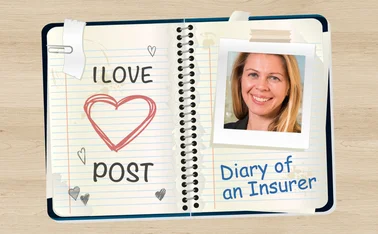
Analysis: The truth behind the broken system of dual pricing

Need to know
- Competing on price could lead to a ‘hollowing out’ of insurance polices.
- Financial Conduct Authority’s renewal transparency guidelines ‘do not go far enough’
- Big Data could provide a solution by offering customers personalised prices rather than discounts
The industry has faced sustained attacks in recent months for its ‘shameful’ practice of raising rates for loyal customers, with one newspaper calling for the government to ‘punish the insurance pirates’.
The practice of dual pricing, where prices are raised significantly at renewal to fund competitive rates for new customers, has undermined efforts by the industry to repair its image in recent years.
Perhaps owing to those sensitivities, Esure, Admiral, Hastings and Axa were approached for this story but declined to comment.
The headlines were sparked by research from Consumer Intelligence. Its CEO, Ian Hughes, said the system of lowering rates for new customers was “broken”.
“Customers are shopping around to get cheaper prices on their premiums and approaching insurers that will give them introductory discounts. They can save around £80 for 10 mins work,” he said.
“It’s impossible to generate loyalty, but the challenge is that everyone is hooked. Weaning the industry off its addiction to new customers is something that the Financial Conduct Authority has faced. On average, 80% of all car insurance customers shop around and 70% shop around for home insurance.
“It’s broken because of the issue to do with introductory discounts. What effectively happens is you get a bunch of new customers and offer them a discount, at the end of the year they get rid of the discount and customers leave the insurer. As an insurer, your company shrinks and you have to replace those customers.”
In his experience observing the insurance market, John Meredith, managing director at A L Risk Solutions, said that insurers that are striving to outprice each other are only playing themselves in the long run.
“It’s the promotion side of things in year one that is quite interesting and shows the disparity between how new and old customers are treated,” said Meredith.
“There seems to be a huge amount of activity surrounding capturing new business but not enough is being done to retain business at second or third renewal. There’s a natural tendency to increase rates at the point of renewal because insurers are trying to make up for what they lost in the first year.”
Meredith said that internet-based insurers rarely market directly to customers and this particular strategy leaves insurers at the mercy of price comparison websites, offering new customers small perks in exchange for applying for a premium.
“Online insurers rarely sell direct, instead they use price comparison websites rather that freely advertise in any other way,” said Meredith. “That is one of the only ways they can generate traffic to the website. The aggregators are using perks such as gift vouchers, cuddly toys and pens to incentivise customers to buy insurance, rather that offering them discounts.”
Recent regulations
The problem is compounded by recent regulations over how to present new rates at renewal. In April, the Financial Conduct Authority made it mandatory for all insurers to declare the previous year’s premium price on renewal letters. The changes came about from pressure from the Association of British Insurers and concern about dual pricing.
Dual pricing: in numbers
Already this year, there has been an increase in average car insurance prices of: 2.2% since February and 4.1% since January.
80% of consumers buy their insurance online and intend to do so in the future
On average, 80% of all car insurance customers shop around and 70% shop around for home insurance
In 2016, 49% of those who got quotes from other providers changed insurer, compared with 48.4% in 2015
Insurers are using customer data in order to ensure customers pay for more personalised products, which reflect their personal lifestyle and choices
In 2016, Consumer Intelligence predicted that 11 million drivers would change insurance providers
Average renewal quotes increased by £22 in 2016 compared to an £11 increase in 2015
Sources: Consumer Intelligence; Association of British Insurers; Office for National Statistics
A spokesman for the ABI said: “We want to see consumers better empowered at the point of renewal and take advantage of a competitive market. We believe the FCA’s guidelines will benefit customers and the market but it takes a while for the effect of these measures to become obvious.
“In any competitive market, you will have customers shopping around for the best deals but we want to redress this so that a better balance between the customer and insurer is created. We believe that the FCA’s transparency rules should be given time and hopefully they will bring about changes.”
Although dual pricing is a problem that has been brought to the attention of the FCA, the watchdog has yet to make advances in tackling the issue further.
James Daley, managing director of consumer group Fairer Finance, said that the regulator could do more to correct the market.
“There’s a role for the regulator here to get involved and tell insurers how they can create more drive and competition within the market without dual pricing,” said Daley.
“There is no regulatory stream that is addressing this. The Competition and Markets Authority previously considered holding a review on price comparison websites but it decided it wasn’t going to bother – it’s a missed opportunity.
“The FCA needs to be looking at things more closely. Renewal letters are easily overlooked by customers. Insurers will bombard policyholders with letters throughout the year and when an important one comes in, they might not even see it. Hopefully the Insurance Distribution Directive will address this issue and look carefully about the information that is presented to customers.”
As with some issues in the industry, firms are looking towards Big Data and innovation to solve problems. Aviva last month announced its ‘Ask it Never’ initiative which uses Big Data to assist customers in the point of application to give them a more accurate and fair quote. At Aviva’s Digital Garage, Mark Wilson, CEO of Aviva, said that the proposition could help solve the issue of dual pricing.
“The Big Data that we use with Ask It Never means that we don’t have to ask customers for answers to the same question again,” he told Post at the time.
“We already have the information that we need in order to price their policy. This means that we can offer customers a fixed level premium price when they want to renew their policy. We can design products that reward customers.”
Data enrichment
Other industry experts believe data enrichment could be the answer to the problem of unfair renewals and dual pricing. Rather than competing with each other on price, insurers could start offering customers the best policies, tailored to their risk. Collecting and analysing information on customers could enable insurers to win over customers without having to sell themselves short with discounted prices.
“Big Data can be used to reach out to customers and offer them what they want, if an insurer does this then they are more likely to win the business without having to give the introductory discount,” said Hughes.
“What is great about Ask It Never is that it doesn’t just use Big Data but also uses the personal data and relationship with the customer to price risk and policies. This ultimately generates loyalty and customers will be less likely to switch.”
Big Data could also be used to make sure insurers are going after the right customers in the first place and not offering ‘blanket’ insurance rates, added Scott Kelly, business development director at price comparison service Iwonder.
“Insurers are becoming more sophisticated in the way they use data, rather than having blanket insurance rates, insurers are now drilling down into customers’ data footprint and offering personal items.
“And insurers can take a look at a person’s claims history to see whether or not they will stay around or switch after a year. By using the right data sources, an insurer will be able to tell whether a customer is good or bad and will earn them a profit.”
Through extreme competition on price, insurers are at risk of focusing on lowering their prices rather than enriching the value of their policies. This could lead to the ‘hollowing out’ of insurance products.
“Insurance cover can’t be thorough if it’s very cheap,” said Daley. “The more people are switching to get the cheapest prices, we may see this incremental hollowing out of products. As this game the insurance industry is playing becomes more acute, businesses will be forced to remove features from their products.”
Only users who have a paid subscription or are part of a corporate subscription are able to print or copy content.
To access these options, along with all other subscription benefits, please contact info@postonline.co.uk or view our subscription options here: https://subscriptions.postonline.co.uk/subscribe
You are currently unable to print this content. Please contact info@postonline.co.uk to find out more.
You are currently unable to copy this content. Please contact info@postonline.co.uk to find out more.
Copyright Infopro Digital Limited. All rights reserved.
As outlined in our terms and conditions, https://www.infopro-digital.com/terms-and-conditions/subscriptions/ (point 2.4), printing is limited to a single copy.
If you would like to purchase additional rights please email info@postonline.co.uk
Copyright Infopro Digital Limited. All rights reserved.
You may share this content using our article tools. As outlined in our terms and conditions, https://www.infopro-digital.com/terms-and-conditions/subscriptions/ (clause 2.4), an Authorised User may only make one copy of the materials for their own personal use. You must also comply with the restrictions in clause 2.5.
If you would like to purchase additional rights please email info@postonline.co.uk








